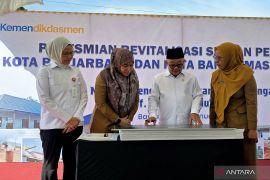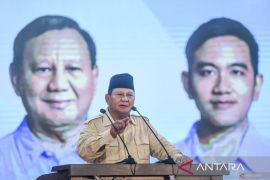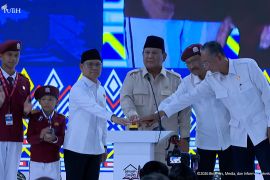"The bill has been registered as Law No. 7 of 2017," Budi said at the Presidential Palace Complex here on Monday.
He expressed hope that all elements and parties related to the election would work immediately due to limited time.
"If obstacles related to the implementation of the law are encountered, the General Elections Commission (KPU) will find a way out," he remarked.
Law and Human Rights Minister Yasonna H. Laoly had earlier noted that the government was ready to face a judicial review in connection with the new election law.
"The draft bill on election has been passed into law. Four factions were against it. It is their right, and there is a mechanism in place to channel their disapproval," Laoly revealed.
The largest opposition party Gerindra has said it will seek a judicial review with the Constitutional Court to challenge the law.
A plenary session ended early dawn on Friday (July 24), passing the General Elections Bill into law proposed by the government despite walkouts by four factions: Gerindra, PKS, PAN, and Democrat.
The majority votes, or 322 of the members of the House of Representatives, were in favor of the draft law that sets the presidential threshold of 20-25 percent and parliamentary threshold of four percent.
Under the election law, a presidential candidate can be proposed only by a party or a coalition of parties having at least 20 percent of seats in the Parliament. The four factions opposing the draft law did not want any limit to be imposed on a party to nominate a presidential candidate in the 2019 presidential election.
The parties supporting the government included the Indonesian Democratic Party-Struggle, Golkar, PPP, PKB, Hanura, and Nasdem.
Gerindra, backed by the PKS, said it will seek a judicial review with the Constitutional Court over the new law.
"Certainly, legal actions would be taken, including a judicial review by the Constitutional Court," Fadli Zon, a chairman of the party, stated.(*)
Editor: Heru Purwanto
Copyright © ANTARA 2017











